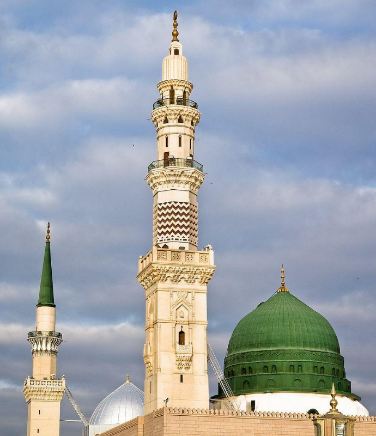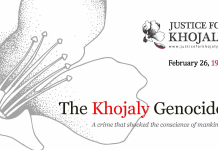
by Muhammad Mohsin Iqbal
Allah Almighty, the Exalted, in His boundless mercy and wisdom, sent down our forefather Hazrat Adam (Peace Be Upon Him) and Mother Eve (Haw’wa) to this earthly realm so that humanity might be established and the story of civilization unfold. But man was never abandoned to wander without direction. At every age, Allah revealed His heavenly guidance through His sacred books and sent His chosen Messengers to guide mankind towards the straight path. From Hazrat Nuh to Hazrat Ibrahim, from Hazrat Musa to Hazrat Isa (Peace Be Upon Them All), each Prophet bore witness to the eternal truth of One Almighty Allah. Yet, with the arrival of Khatam-ul-Nabi’een, Hazrat Muhammad (Peace and Blessings Be Upon Him), the Divine mission found its seal and perfection.
To him was revealed the Holy Qur’an, the last heavenly book, a guide for all people and all ages. As Allah declares: “This is the Book about which there is no doubt, a guidance for those conscious of Allah” (Al-Baqarah 2:2). And again, “And We have not sent you, [O Muhammad], except as a mercy to the worlds” (Al-Anbiya 21:107). This mercy was not confined to Muslims alone; it flowed like an eternal ocean, embracing all creation—man and beast, believer and non-believer, the heavens and the earth.
The Prophet’s noble character became the living Qur’an, his words and deeds the finest model for humanity: “Indeed, in the Messenger of Allah you have an excellent example for whoever has hope in Allah and the Last Day and remembers Allah often” (Al-Ahzab 33:21). His humility was unmatched, his justice unbending, his kindness unending. He himself said: “I was sent only to perfect good character” (Musnad Ahmad).
From the deserts of Arabia, his message radiated across continents, reshaping the course of history. Poets, scholars, and sages—Muslim and non-Muslim alike—found themselves compelled to write about this personality who changed the destiny of nations. In every language and in every age, countless volumes have been written in his praise, yet his grandeur remains beyond the grasp of pen and tongue.
Alphonse de Lamartine, the French poet and statesman, confessed: “Philosopher, orator, apostle, legislator, warrior, conqueror of ideas… the founder of twenty terrestrial empires and of one spiritual empire, that is Muhammad. As regards all standards by which human greatness may be measured, we may well ask, is there any man greater than he?”
The Scottish scholar William Montgomery Watt testified to the Prophet’s integrity: “His readiness to undergo persecutions for his beliefs, the high moral character of the men who believed in him and looked up to him as leader, and the greatness of his ultimate achievement—all argue his fundamental integrity.”
George Bernard Shaw, with his keen wit, proclaimed: “He must be called the Savior of Humanity. I believe that if a man like him were to assume the dictatorship of the modern world, he would succeed in solving its problems and bring peace and happiness.”
Thomas Carlyle, awed by his statesmanship, wrote: “How one man single handedly, could weld warring tribes and Bedouins into a most powerful and civilized nation in less than two decades… A silent great soul, one of that who cannot but be earnest. He was to kindle the world.”
Leo Tolstoy, the Russian sage, affirmed: “There is no doubt that Prophet Muhammad is one of the greatest reformers who served the social framework profoundly. He led a whole nation to the enlightenment of truth and widely opened to it the gate to development and civilization.”
Mahatma Gandhi, though belonging to another faith, admitted: “It was not the sword that won a place for Islam … It was the simplicity, the utter self-effacement of the Prophet, the scrupulous regard for his pledges, his devotion, his fearlessness, his absolute trust in God and in his mission.”
Annie Besant too bowed her head in reverence: “It is impossible for anyone who studies the life and character of the great Prophet of Arabia to feel anything but reverence for that mighty Prophet…”
Edward Gibbon, the English historian, acknowledged: “The greatest success of Mohammad’s life was effected by sheer moral force without the stroke of a sword.” Reverend Bosworth Smith called him “Caesar and Pope in one; but he was Pope without the Pope’s pretensions, and Caesar without the legions of Caesar.”
Johann Wolfgang von Goethe, the German genius, hailed him as the “Hero of Humanity,” whose life flowed like an “eternal mighty stream.” Annemarie Schimmel declared: “The Prophet is the one who forever remains the ‘beautiful model’… Love of the Prophet runs like blood in the veins of his community.” Michael H. Hart ranked him first among history’s most influential figures: “He was the only man who was supremely successful on both the religious and secular level.”
Washington Irving saw in him a man of sobriety and simplicity, beloved by the common people. Sir Thomas Arnold praised his message as a creed “so precise, so stripped of all complexities” that it wins its way into the hearts of men.
Thus, whether through revelation or history, through the testimonies of saints or scholars, all affirm one truth: the Messenger of Allah was the Light that illuminated darkness. The Qur’an itself proclaims: “O Prophet, indeed We have sent you as a witness and a bringer of good tidings and a warner, and one who invites to Allah by His permission, and an illuminating lamp” (Al-Ahzab 33:45–46).
The seal of Prophethood rests with him, yet his light remains undimmed, his example eternal. His footsteps echo in the prayers of the faithful, in the call to prayer that resounds from minarets, in the very pulse of the Muslim heart. He was, and remains, the mercy for the worlds. No pen has fully captured him, and no voice can fully praise him. Indeed, as Lamartine asked and as history answers: is there any man greater than he?

















